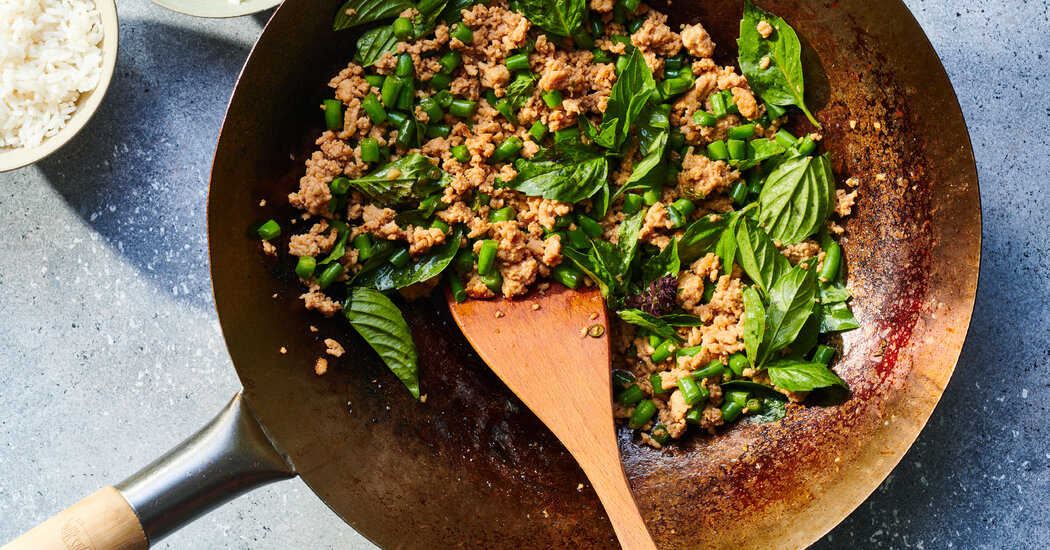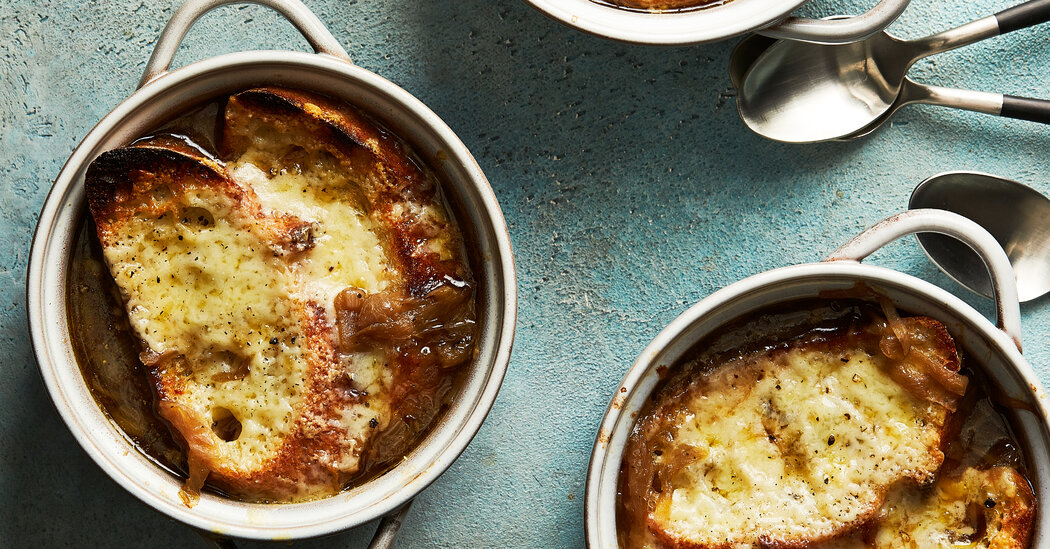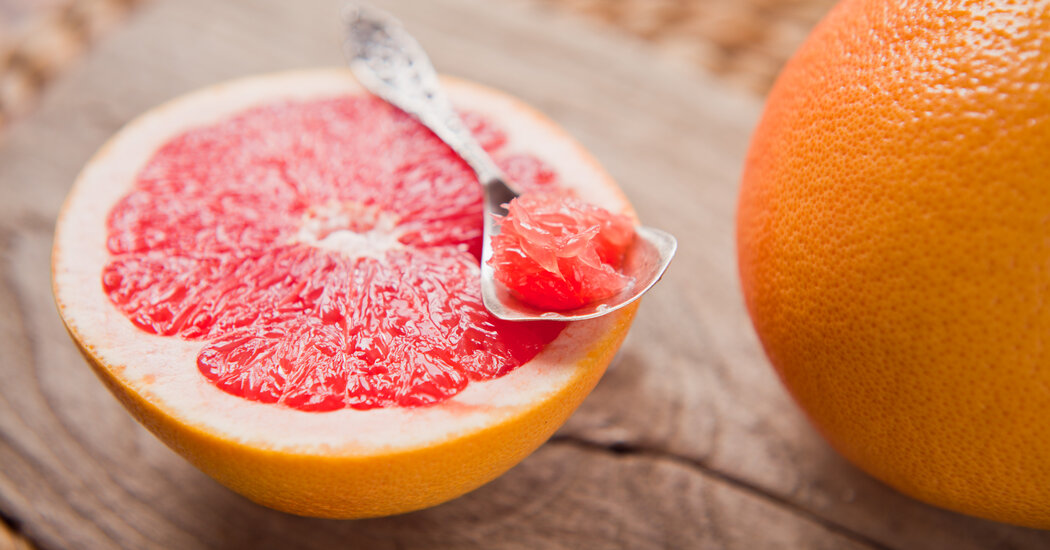Hi, everyone, Ali here, filling in for Emily Weinstein! I develop recipes for New York Times Cooking — maybe you’ve seen or even made my shrimp scampi with orzo, crispy gnocchi with burst tomatoes or turmeric-black pepper chicken with asparagus.
I spend most days tinkering with new recipes, so when it’s time to eat dinner, there are usually whole meals leftover from that morning’s testing to eat, or various ingredients to puzzle into a dinner. Some of those use-what-I’ve-got situations give me an idea for a new recipe, and the cycle continues.
But! Every season brings a handful of dishes that are non-negotiables, meals I have to make regardless of what’s already in the fridge. It wouldn’t be summer without charred bits, bread soaked in salad juice, and sprightly herbs and vegetables, all of which are captured in the five dishes that follow. Some tweaks are included for each, too: Like many NYT Cooking readers, I don’t always follow recipes exactly.
By the way, salad juice (noun) is the potion that collects beneath a salad consisting of juicy ingredients such as tomatoes, soft cheese, citrus and cucumbers. Used in a sentence: “Caprese’s salad juice of spritzy and salty tomato water, milky mozzarella and peppery olive oil is reason enough to make caprese.”
1. Pad Krapow Gai (Thai Basil Chicken)
A whole cup of basil leaves adds freshness and spunk to this savory, salty stir-fry of ground chicken and green beans. While holy basil is traditional in this Thai street food dish, any basil will do. As Alexa Weibel writes in the recipe, which she adapted from “Night + Market” by Kris Yenbamroong and Garrett Snyder, “Thai basil or holy basil provide more assertive licorice notes” and “sweet basil adds herbal bursts of brightness.”
How I make it: I use ground turkey for more juiciness and soy sauce instead of Thai seasoning sauce. Plus more basil — Kenji López-Alt’s recipe in his book “The Wok” uses 1 ½ packed cups.
2. Caprese Antipasto
By adding roasted red peppers, caper berries, olives and prosciutto to caprese, David Tanis’s uncharacteristically maximalist recipe means that the salad is promoted to the main dish of the table and that even more ingredients can experience the wonder of salad juice.
How I make it: I add any mix of capers, pickled peppers, radishes, arugula, stone fruit, melon, avocado and white beans. And there is always bread for collecting the salad juice.
3. Crispy Coconut, Asparagus and Green Bean Salad
Every time I make this salad from Yotam Ottolenghi, it grabs all the attention. Even next to a crackly tahdig, ruby red baked sockeye salmon or glistening ribs, my friends want to know what exactly is going on in this salad. The answer is snappy chilled green vegetables; a spicy coconut topping based on serundeng, an Indonesian condiment; and a puckery miso-lime dressing. Make it a main dish by adding seared tofu or blanched shelled edamame.
How I make it: I tackle the various components ahead of time, and you can too. Blanch and refrigerate the vegetables up to two days ahead; make the coconut topping and dressing up to a day ahead. Leave the topping covered at room temperature and refrigerate the dressing. The vegetables can vary, too: broccoli, sweet potatoes, snap peas — go for it.
4. Moroccan Kefta
Keftas exist in many forms, flavorings and spellings across continents. In Nargisse Benkabbou’s recipe, all the vegetables — the grated onion and a grassy knoll of herbs — make the long patties distinctly juicy and fragrant. They’re nice with some combination of pita or another flatbread toasted on the grill, grilled vegetables and a tomato-cucumber salad like Samin Nosrat’s salad-e shirazi.
How I make it: I usually handle the first three steps the morning of. And instead of using skewers, which I never seem to have, I shape the meat like sausages and grill them parallel to the grates (just like hot dogs, another summer requisite).
5. Yucatan Shrimp
Simultaneously reminiscent of shrimp scampi and Buffalo wings, Sam Sifton’s adaptation of Yucatan shrimp from Doc Ford’s Sanibel Rum Bar and Grille in southwest Florida drapes poached shrimp in a butter sauce fiery with jalapeño, hot sauce, garlic and lime. Eat with your hands, with rice for catching all that sauce.
How I make it: I fire up the grill for smokier, crispier shrimp. Add all the sauce ingredients to a large bowl; no need to melt the butter. When the shrimp come off the grill, add them to the bowl and toss with confidence. The heat from the shrimp will emulsify the butter and gloss the shrimp. Since the grill’s hot, char some corn to eat alongside.







